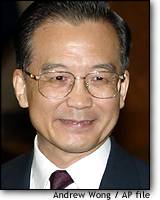DATE
|
POLITICS | SOCIETY | CULTURE | PEOPLE | WORLD
|
| Late Qing Period (1700 - 1911) | |||||
| 1700-1740 | Rites Controversey leads to withdrawal of Jesuit mission | ||||
| 1793 | "Macartney Mission" -- failed attempt to establish British-Chinese diplomacy in framework of "Tribute System" | Era of the French Revolution (1789-1800) initiates the spread of social radicalism in Europe | |||
| 1796-1804 | White Lotus Uprising signals anti-Manchu unrest and social decay | ||||
| 1839 | Commissioner Lin Zexu arrives in Canton to put an end to opium trade | ||||
| 1840-1842* | Opium War -- British defeat China in South China and force terms of "Treaty of Nanjing" | Establishment of "Treaty Ports" and cession of Hong Kong to Britain as a colony | |||
| 1848 | Europe's
"Revolutionary Year" brings doctrines of Karl Marx |
||||
| 1850-1864 | Taiping Rebellion | South China largely out of Qing gov't control | Taiping "Christian" ideology sweeps South China | Hong Xiuquan, leader of rebellion Anti-Taiping
forces ulti |
|
| 1864-1894 | "Era of Self Strengthening" | Rapid growth of foreign presence in expanding array of "Treaty Ports," which include foreign "concessions" (urban districts under non-Chinese administration) | First period of active importation of Western ideas -- policy of "adopt Western Techniques & preserve Chinese Spirituality" | Zeng Guo-fan's
Rising power of Empress/Empress Dowager Cixi |
|
| 1894-95 | Sino-Japanese War | Yuan Shikai |
|||
| 1898 | The "Hundred Days" | Reform programs of Kang Youwei
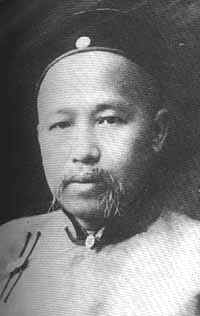 -- Kang
flees to Japan after forces loyal to Cixi stage coup -- Kang
flees to Japan after forces loyal to Cixi stage coupOther Chinese revolutionaries in
Japan include Sun Yat-sen, |
|||
| 1900* | Boxer Uprising | ||||
| 1905 | End of Confucian Examination System |
Russo-Japanese
War -- Japan's victory increases Japanese power in Korea and Manchuria Abortive revolution in Russia signals rising power of social radicalism |
|||
| 1911 | Republican Revolution breaks out in military barracks in Wuchang -- meets little resistance in near-bloodless ouster of Manchu dynasty | Sun Yat-sen named "Provisional
President" Yuan Shi-kai brokers Qing "surrender" |
Japan annexes Korea (1910) | ||
| Republican China (1912-1949) | |||||
| 1912* | Establishment of Republic of China | Yuan Shikai becomes first President | |||
| 1913 | Sun Yat-sen establishes the "National People's Party" (the Kuo-min-tang [KMT], or Guomindang [GMD]) | Nationalists win first (and only) fully democratic national election in China -- Yuan Shikai dissolves new parliament | |||
| 1914-1918 | Reduced influence of Europe in East Asia Rise of Japanese power in China |
World War I
|
|||
1915 |
Japan issues the "Twenty-One Demands" | ||||
| 1916 | Yuan Shikai dies | ||||
| 1917 | Adulation of Woodrow Wilson Rise of liberal currents among urban intellectuals |
US entry into war
on basis of Wilsonian "Self-determination of nations" Communist Revolution in Russia -- Lenin |
|||
| 1917-1927 | National government in Beijing in hands of loyalists of northers "Warlord" strongmen | Warlord Decade | Rapid dissemination of Western political, social, and artistic ideas in urban centers | Lu Xun
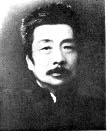 composes "Kong Yiji" and
other fiction of social criticism
composes "Kong Yiji" and
other fiction of social criticism |
|
| 1919* | Treaty of Versailles ending World War I signed in France | May 4th Uprising protests Chinese government's capitulation at Versailles | Initiation of May 4th Movement Liberal trends in literature & academics |
Mussolini forms Fascist Party in Italy -- becomes Prime Minister in 1922 | |
| 1921 | Chinese Communist Party [CCP] established in Beijing | Mao Zedong
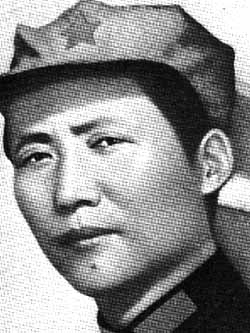 a founding member of CCP
a founding member of CCP |
|||
| 1923 | KMT-CCP Alliance established | ||||
| 1925 | Death of Sun Yat-sen | ||||
| 1927* | Northern Expedition Purge of CCP by KMT |
Culmination of "Second Revolution" (or "Nationalist Revolution") | Chiang Kai-shek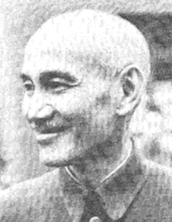 consolidates power within KMT consolidates power within KMT |
Stalin takes power in USSR (Lenin d. 1924) | |
| 1927-1937 | The "Nanjing Decade" -- KMT in control; capital in Nanjing | KMT's "New Life" movement combines Confucian and Fascist ideas -- Nationalist Revolution takes sharp right-wing turn | Dominance of the Soong family in KMT government | ||
| 1927-1934 | CCP in Jiangxi (in southeast) -- Period of "Jiangxi Soviet" | CCP intitates Land Reform in Jiangxi |
|||
| 1929-1939 | Era of woldwide Great Depression | ||||
| 1931 | Japanese army stages phony "Mukden Incident" as pretext to invade all Manchuria and establish puppet state of Manchukuo (1932) | Japanese militarists gain control | |||
| 1933 | Hitler becomes Chancellor in Germany | ||||
| 1934-1935* | KMT "encirclement campaigns" vs. CCP, leads to The Long March | Mao takes control of CCP at "Zunyi Conference," midway in Long March | |||
| 1936-46 | CCP in Yan'an (in northwest) -- the "Yan'an Period" | CCP introduces moderate land reform in North | Development of Maoist ideology "Yan'an Sprit" and leadership of "Eighth Route Army" (later "People's Liberation Army", or PLA) |
CCP leadership in hands of Mao (general leader &
ideologue), Zhou Enlai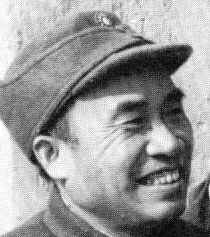 |
|
| 1936 | Xi'an Incident [Sian Incident]-- Chiang
Kai-shek kidnapped by Zhang Xueliang Chiang's release initiates KMT-CCP United Front against Japan (to 1942) |
||||
| 1937-45* | The War of Resistance Against Japan (World War II in East Asia) begins with Marco Polo Bridge Incident (7/7/37) | KMT government retreats to Chongqing in southwest | Flight of refugees to Chongqing & Yan'an | Joseph Stilwell commands American forces in China aiding
KMT "Dixie Mission" of US forces in Yan'an (1944-45) |
World War
II in Europe (1939-45) US engagement, 1941-1945 (Pearl Harbor 12/7/41) |
| 1946-1949 | KMT-CCP Civil War | Beginning of Cold War | |||
| Communist Period -- Maoist Phase (1949 - 1976) | |||||
| 1949* | "Liberation" -- KMT forces
retreat to Taiwan Establishment of the People's Republic of China |
||||
| 1950-1953 | Korean War | McCarthy era in US Death of Stalin (1953) |
|||
| 1952 | Five-Anti Campaign | ||||
| 1956-1960 | Emergence of "Sino-Soviet Split" | ||||
| 1956-57 | Hundred Flowers Campaign | Khrushchev in power in USSR -- retreat from Stalinism | |||
| 1957-58 | Anti-Rightist Campaign | ||||
| 1958-1959* | Great Leap Forward | Widespread famine kills up to 30 million | |||
| 1960-1962 | Era of "retrenchment" -- moderates in control | ||||
| 1962-1965 | Socialist Education Campaign | "Downward transfer" program relocates millions of "intellectuals" | "Politics in command" of education -- school admissions based on politics | Dominance of moderates Liu Shaoqi and Deng
Xiaoping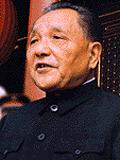 |
Beginning of US engagement in Vietnam |
| 1966-1970* | Cultural Revolution | Red Guards exercise primary power in provices | Campaign against the "Four Olds" | Rise to dominant power of Jiang Qing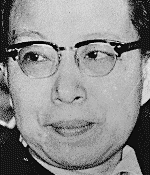 and
PLA chief Lin Biao (purge of moderates) and
PLA chief Lin Biao (purge of moderates) |
Election of Richard Nixon (1968) -- Henry Kissinger National Security Advisor / Secretary of State |
| 1970-1976 | Latter phase of Cultural Revolution | PLA leading social force | Jiang Qing leads "Gang of Four" |
Final US defeat in Vietnam (1975) | |
| 1971 | Ping-pong Diplomacy with US | Lin Biao dies fleeing from botched coup
Foreign policy control under Zhou Enlai |
|||
| 1972 | Richard Nixon visits China | ||||
| 1976* | Arrest of Gang of Four (Oct. 6) |
Suppression of April memorial demonstrations for Zhou Enlai at Tiananmen -- Deng Xiao-ping goes into hiding | Death of Zhou Enlai (1/8) Death of Mao Zedong (9/9) Hua Guofeng head of state -- reemergence of Deng Xiaoping |
Death of Chiang
Kai-shek in Taiwan (1975) -- rise of Chiang Ching-kuo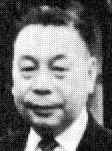 (Pres. 1975-88) leads to political
liberalization in ROC (Pres. 1975-88) leads to political
liberalization in ROC |
|
| Post-Mao China (1976 - ) | |||||
| 1978-79 | Birth & death of "Democracy Wall" | Deng in full control; Hua Guofeng forgotten Wei Jingsheng imprisoned for political protests |
Carter administration announces shift of US diplomatic ties from Taiwan to Beijing | ||
| 1980 | Trial of Gang of Four | Jiang Qing imprisoned (commits suicide, 1991) Appointment of Hu Yaobang (Premier) and Zhao Ziyang (Chairman) |
|||
| 1987 | Student demonstrations and anti-government protests lead to Hu Yaobang's dismissal. Li Peng appointed Premier | Gorbachev's policies liberalize USSR | |||
| 1989* | Tiananmen Incident | Death of Hu Yaobang Zhao Ziyang disgraced, Jiang
Zemin |
Lee Teng-hui
President of ROC (Taiwan), 1988-2000 Fall of the Berlin Wall -- Cold War begins its end |
||
| 1997 | Reversion of Hong Kong to Chinese control | Death of Deng Xiaoping | |||
| 1998 | Appointment of Zhu Rongji as Premier signals policy of economic pragmatism | ||||
| 2000 | US grants China permanent normal trade relations; preparation to enter WTO | Election
in Taiwan of Chen Shui-bian and end of KMT control and end of KMT control |
|||
| 2001 | China enters WTO | ||||
| 2003 | "Fourth Generation" leadership installed |
New Politburo led by |
President Bush signals Taiwan to avoid provoking PRC on issue of Taiwan independence | ||
| 2004 | Chen Shui-bian wins second term in contentious Taiwan election | ||||
| 2008 | China prepares to host its first Olympic Games | KMT returns to power under
Ma Ying-jeou on a platform of rapprochement with PRC 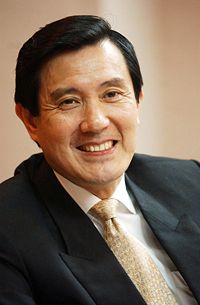 |
|||

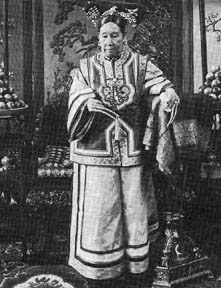
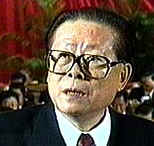 appointed Chairman
appointed Chairman 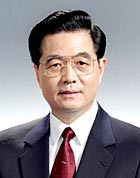 President
Hu Jintao and
Prime Minister Wen Jiabao
President
Hu Jintao and
Prime Minister Wen Jiabao